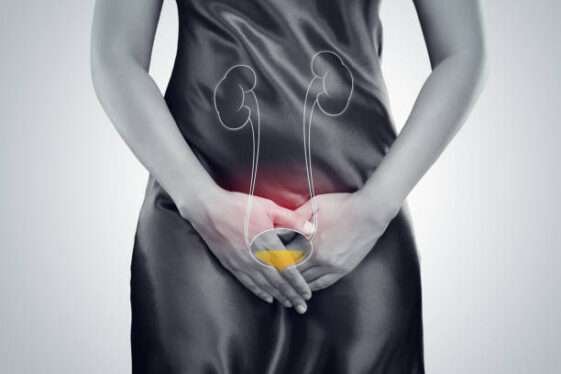
Urinary Tract Infection (UTI) is one of the most common bacterial infections that affects millions of people around the world every year. Though it can occur in both men and women, women are more prone to UTIs due to their anatomy. If not treated on time, a simple UTI can lead to more severe kidney infections and other complications.
In this blog, we’ll understand what a UTI really is, why it happens, its symptoms, who is at risk, and how Ayurveda views this condition.
What is UTI?
A UTI is an infection that can occur anywhere in your urinary system — including the kidneys, ureters (tubes connecting kidneys to the bladder), bladder, and urethra (the tube that carries urine out of the body). Most commonly, bacteria infect the bladder and urethra, leading to painful symptoms.
Types of UTI:
- Cystitis (Bladder infection) – The most common type.
- Urethritis (Urethra infection) – Usually caused by bacteria from the bowel.
- Pyelonephritis (Kidney infection) – More severe, needs urgent treatment.
Why Are Women More Prone to UTIs?
Women have a shorter urethra than men, which makes it easier for bacteria to reach the bladder. Factors like sexual activity, pregnancy, menopause, and certain birth control methods also increase the risk of UTIs in women.
However, men can also get UTIs, especially if they have an enlarged prostate, kidney stones, or any urinary tract blockages.

Who is at Risk of Getting a UTI?
Anyone can get a UTI, but certain conditions increase the risk:
- Poor hygiene: Not wiping properly or using unclean public restrooms.
- Holding urine: Delaying urination gives bacteria more time to multiply.
- Weakened immune system: People with diabetes, HIV, or other conditions.
- Pregnancy: Hormonal changes can affect the urinary tract.
- Use of catheters: People who need a catheter are at higher risk.
- Postmenopausal women: Decreased estrogen levels can change urinary tract bacteria balance.
How Do UTIs Spread?
UTIs occur when bacteria — usually Escherichia coli (E. coli) from the digestive system — enter the urethra and begin to multiply in the bladder. If not flushed out by urination, they can lead to infection.
Symptoms of UTI
The symptoms can vary depending on which part of the urinary tract is infected, but the most common signs include:
- A strong and constant urge to urinate
- Burning or pain while urinating
- Passing small amounts of urine frequently
- Cloudy or milky urine
- Urine that smells unusually strong or foul
- Blood in the urine (pink or reddish)
- Lower abdominal or pelvic pain
- Fever, chills, or back pain (if the kidneys are infected)
Possible Complications if Untreated
Most UTIs are mild and can be treated easily, but ignoring the signs can lead to serious problems:
- Recurrent infections: Some people get frequent UTIs.
- Kidney damage: Untreated infections can reach the kidneys and cause permanent damage.
- Pregnancy complications: UTIs during pregnancy can lead to premature birth or low birth weight.
- Sepsis: In rare cases, the infection can spread to the bloodstream and become life-threatening.
Ayurvedic Perspective on UTI
In Ayurveda, UTIs are linked to an imbalance in Pitta dosha, which governs heat and metabolism in the body. When Pitta increases, it produces excess heat and inflammation, leading to burning sensations, pain, and infection in the urinary tract.
Ayurveda believes that poor dietary habits, stress, dehydration, and unhealthy hygiene practices aggravate Pitta and increase the chances of UTIs. The Ayurvedic approach focuses on cooling the body internally, cleansing the urinary tract, and improving immunity naturally — all under the supervision of an experienced Ayurvedic practitioner.
When Should You Consult a Doctor?
UTIs are common but should not be ignored. Consult a doctor if you experience:
- Severe pain while urinating
- High fever or chills
- Blood in the urine
- Back or side pain
- Frequent UTIs
- Symptoms lasting more than 2-3 days
Timely diagnosis and treatment are very important to prevent complications.
Stay Healthy, Stay Informed
Practicing good hygiene, drinking enough water, not holding urine for too long, and following a balanced diet can help you prevent urinary tract infections to a great extent.
However, if you experience repeated UTIs or want to treat it naturally without side effects, you should consult an experienced Ayurvedic doctor who can understand your body constitution (Prakriti), check for root causes, and guide you with safe, herbal solutions.
Need Help? Get Personalised Ayurvedic Guidance
If you’re suffering from frequent UTIs, don’t ignore it. Talk to an expert and get natural, side-effect-free solutions. Visit Vedic Upchar’s Consultation Page to book your consultation today and start your journey towards better urinary health the Ayurvedic way.